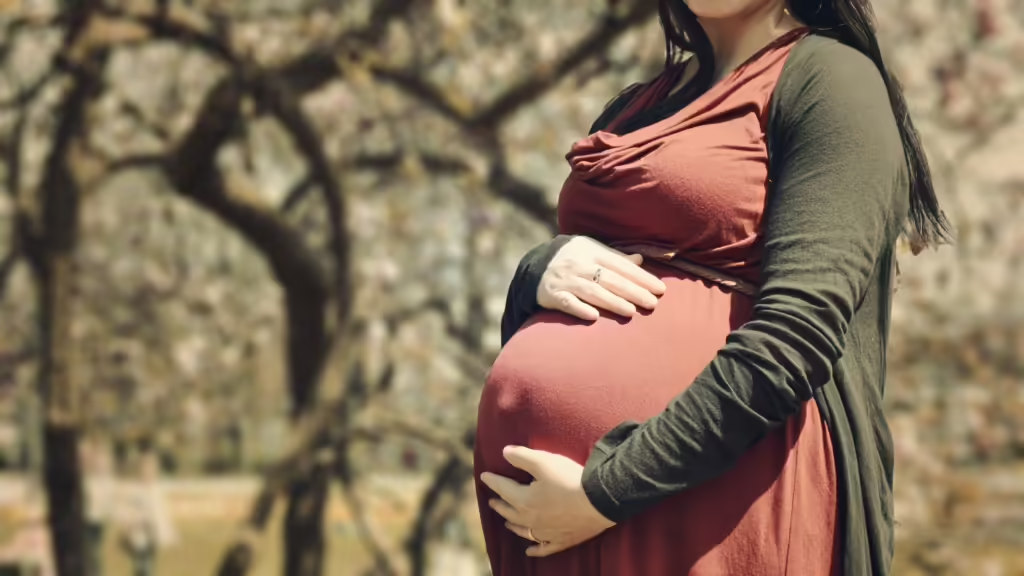Eating disorders are serious but treatable conditions that can be experienced by anyone at any point in their life. Some people may even experience eating disorders during pregnancy. In fact, nearly 12% of pregnant people report eating disorder symptoms during their pregnancy or postpartum. This can pose particular challenges for an individual and can lead to health problems for both the pregnant individual and their baby (both in utero and postpartum). It is important to understand the signs and symptoms of eating disorders and how these conditions can impact pregnancy so you or a loved one can find the help you may need. This article will explore the challenging co-occurrence of eating disorders and pregnancy and ways to seek care for an eating disorder during the particularly vulnerable time of pregnancy.
What Is An Eating Disorder?
An eating disorder is defined by the American Psychiatric Association’s Diagnostic and Statistical Manual of Mental Disorders (DSM-5) as a condition characterized by extreme and persistent changes in eating behaviors, often accompanied by negative emotions and thoughts. Eating disorders may appear as fixations regarding relationships with food and eating, hyperfocus on body weight, and distorted body image. Eating disorders have significant negative impacts on physical and mental health, and often co-occur with other mental health conditions, such as anxiety and depression. In the case of people who are pregnant, eating disorders can also co-occur with postpartum depression.
Everyone who experiences an eating disorder can have varying symptoms depending on a multitude of factors, including the specific diagnosis and the individual’s social and physical environment. If you have experienced an eating disorder in the past, it can exhibit differently at different times in your life, such as during pregnancy.
Some physical signs of an eating disorder may include:
- Significant fluctuations in weight
- Gastrointestinal issues
- Dizziness and fainting
- Inability to regulate body temperature
- Problems with sleeping
- Menstrual irregularity or spotting during pregnancy
- Dry skin and nails
- Thinning hair
- Fatigue and muscle weakness
- Lowered immune response
- Pregnancy complications
Some behavioral signs of an eating disorder may include:
- Anxiety and depression
- Frequent dieting
- Preoccupation with body weight or body shape
- Fixation on calories or other nutritional values
- Avoidance of eating with others
- Social isolation
- Restriction of particular food groups
- Excessive or compulsive exercise
- Patterns of binge eating and purging
- Secrecy around eating habits
If you have any concern about you or a loved one regarding displaying potential eating disorder symptoms during pregnancy, please reach out for help and resources to assure you get the support you need for a healthy and safe pregnancy.
Eating Disorders and Fertility
Eating disorders not only affect pregnancy, but can also impact fertility. When the body is malnourished, many bodily functions can be dysregulated or even halted. Men who experience eating disorders may have low sperm count and reduced sperm motility. Many women who struggle with eating disorders experience menstrual irregularity and unpredictability or cessation of ovulation. Low sperm count and irregular ovulation can both lead to infertility and/or difficulties conceiving.
Eating Disorders and Pregnancy
Pregnancy is a time of many changes in an individual’s body and behaviors. Growing a human requires a significant amount of strength and additional energy. Most pregnant people will experience weight gain during pregnancy to support these changes and energy demands. For those who experience eating disorders, these physical shifts and changes in body size and body shape can be alarming and lead to increased eating disorder behaviors and symptoms. For people who are in recovery/have recovered from eating disorders, pregnancy may bring up old thoughts and/or behaviors due to these changes occurring in the body.
When someone experiences an eating disorder, such as anorexia nervosa, bulimia nervosa, or binge eating disorder (BED), during pregnancy, it may increase the risks of complications for both the parent and baby. Risks for the pregnant person may include:
- Malnutrition and dehydration
- Gestational diabetes
- Depression and anxiety
- Premature birth
- Preeclampsia
- Complications during labor
- Miscarriage
When pregnancy and eating disorders co-occur, the health and wellbeing of the baby may also be impacted, including:
- Irregular development of brain and organs
- Irregular fetal growth
- Low birth weight
- Chemical and nutritional imbalances
- Reduced immune response
For those who have or are currently experiencing an eating disorder, it can be helpful to work closely with eating disorder specialized and informed providers who can help you or a loved one before, during, and after pregnancy.
Pregnancy: A Trigger for Eating Disorders
Pregnancy can be a vulnerable time for anyone, but especially so for those who have struggled with eating disorders. As the fetus grows, a pregnant person’s body undergoes many changes. Although no doubt challenging, these changes can be empowering and inspiring for many pregnant people. For others, many behaviors and changes that occur during pregnancy could serve as triggers for eating disorder behaviors.
Not only does a pregnant person’s body often change drastically, but many habits and behaviors during pregnancy can be very body-centric. Doctors, family members, and even strangers begin to pay attention to a pregnant person’s changing body and behaviors in new and intimate ways. While this can be necessary and important for healthcare professionals to provide appropriate prenatal care, perceptions and comments from others may be unwelcome and even triggering.
Triggers will look different for every individual, but some may include:
- Morning sickness and vomiting
- Perception of changes in weight and body shape
- Additional attention to nutritional intake
- Emphasis on exercise and activity
- Loss of bodily control
- Changes in ability and mobility
If you or someone you love is struggling with an eating disorder during pregnancy, it is important to be honest with your doctor and support network. It may be helpful to find eating disorder-specialized help to ensure a healthy pregnancy for you and your baby.
Postpartum and Eating Disorders
Eating disorders affect not only conception and pregnancy, but also the postpartum period. The effects of eating disorders on the postpartum or perinatal periods can be physical, mental, and behavioral. Those who experience eating disorders during pregnancy are more likely to suffer from postpartum depression and anxiety. These conditions can make it harder to recover from pregnancy and birth, may interfere with parent-child bonding, and can further intensify postpartum hormonal changes. If an individual is limiting energy or nutritional intake, it can also disrupt the body’s healing process post-birth, resulting in a longer recovery and increased risk of infections. Furthermore, those who experience an eating disorder during pregnancy or the postpartum period may struggle with lactation and breastfeeding, and thus experience difficulties in feeding their child.
For some people, the postpartum period can also trigger new or old eating disorder thoughts and behaviors. Increased attention to body shape and size, competitive feelings about “returning to pre-pregnancy weight”, and shifts in hormones can all serve as potential triggers for an eating disorder. Postpartum is a challenging time for all parents – if you or a loved one is experiencing eating disorder symptoms during the postpartum period, please reach out for support and resources.
Managing an Eating Disorder During Pregnancy
If you are struggling with an eating disorder as a pregnant person, it is important to get help as soon as you can. You may be struggling with feelings of fear or shame, but it’s necessary to be honest with your doctor about symptoms so they can help you get the support you need. Scheduling additional appointments with your care team, such as a dietitian, psychiatrist, therapist, and/or your obstetrician, can help you care for the health of both you and your baby.
For those who are pregnant, trying to become pregnant, or in the postpartum period, it can be important to find care with an eating disorder-specialized treatment team. Eating disorder treatment varies based on a multitude of factors, such as geographic location, insurance coverage, and level of care needed.
Seek Help
If you or a loved one is experiencing an eating disorder during pregnancy, you are not alone. Recovery is possible and help is available with the National Alliance for Eating Disorders.



